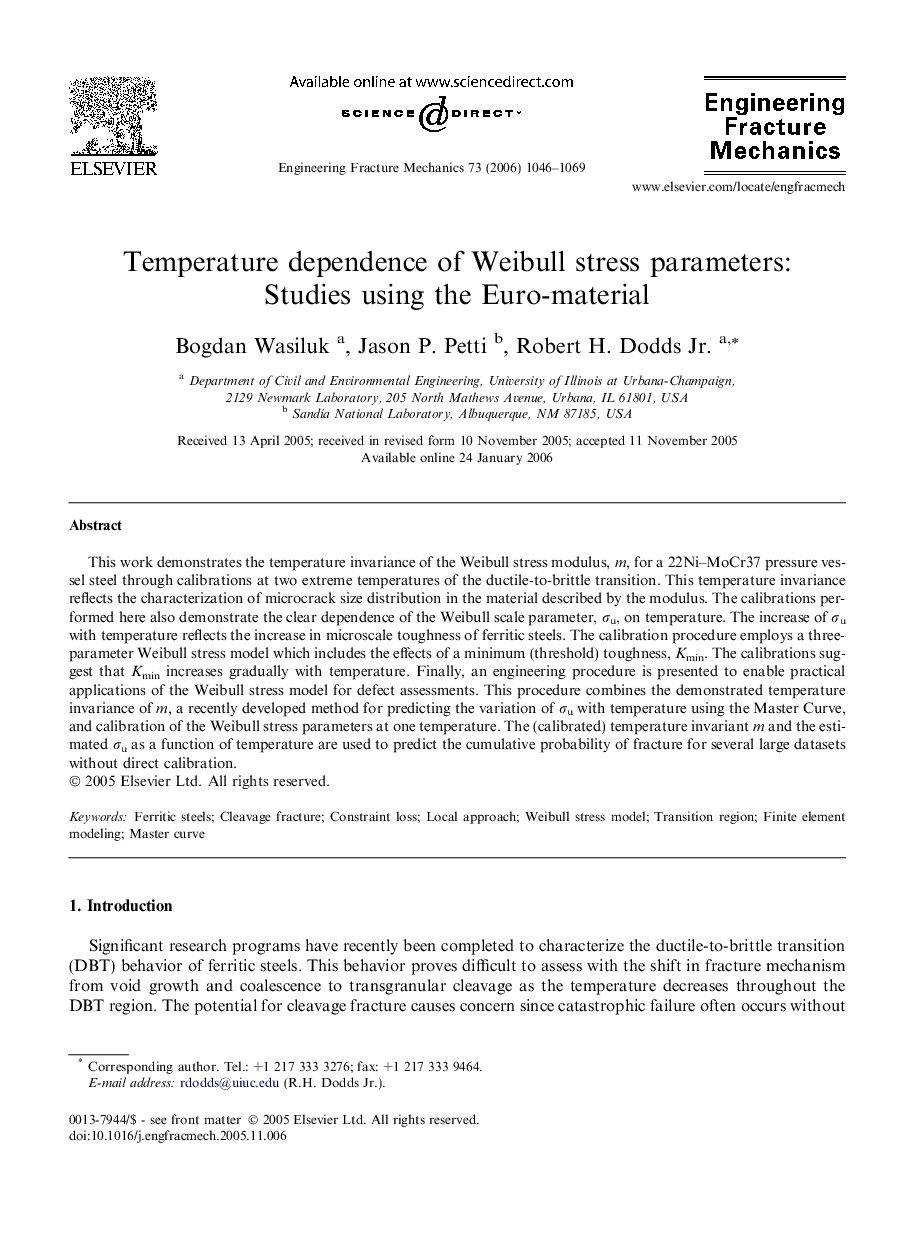| Article ID | Journal | Published Year | Pages | File Type |
|---|---|---|---|---|
| 771581 | Engineering Fracture Mechanics | 2006 | 24 Pages |
This work demonstrates the temperature invariance of the Weibull stress modulus, m, for a 22Ni–MoCr37 pressure vessel steel through calibrations at two extreme temperatures of the ductile-to-brittle transition. This temperature invariance reflects the characterization of microcrack size distribution in the material described by the modulus. The calibrations performed here also demonstrate the clear dependence of the Weibull scale parameter, σu, on temperature. The increase of σu with temperature reflects the increase in microscale toughness of ferritic steels. The calibration procedure employs a three-parameter Weibull stress model which includes the effects of a minimum (threshold) toughness, Kmin. The calibrations suggest that Kmin increases gradually with temperature. Finally, an engineering procedure is presented to enable practical applications of the Weibull stress model for defect assessments. This procedure combines the demonstrated temperature invariance of m, a recently developed method for predicting the variation of σu with temperature using the Master Curve, and calibration of the Weibull stress parameters at one temperature. The (calibrated) temperature invariant m and the estimated σu as a function of temperature are used to predict the cumulative probability of fracture for several large datasets without direct calibration.
